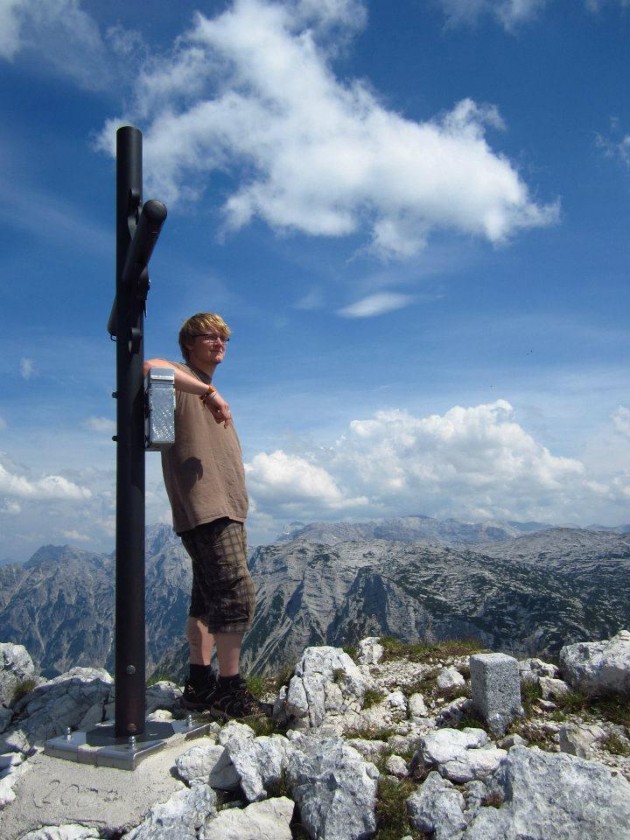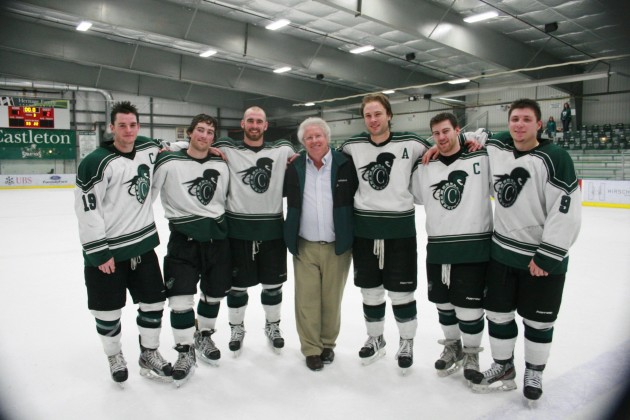Dual citizen now calls CSC home

Walking through the hallways of Leavenworth in a dark green beanie with blonde hair trying to escape from the sides, a gray striped, hooded sweatshirt and regular wash blue jeans, he appears to be a normal American teenager.
Even when he engages in conversation with Bob Gershon, his documentary workshop professor, nothing seems off or irregular about him.
He rides a bike, goes to the gym, lives in a messy dorm and hangs out with friends like any typical college student.
What sets Ben Carstens apart from everyone else is his dual-citizenship – andneither are from this country. Oh, and not every 20-year-old college student can say they’ve done 135mph on the Autobahn in Germany, although they may dream of it.
Carstens was born in Cork, Ireland where he lived for nine years before movingto Germany with his mother. Both countries consider him a legal citizen.
Carstens describes Ireland in comparison to Vermont, but adds that it’s much more cultural and traditional.
Germany, he said, ismore crowded.
“I definitely prefer Ireland. It doesn’t matter if you don’t know a person, everyone says hello to everyone and the seafood….ahh, I love the seafood,” said Carstens.
Communication Professor Bob Gershon thinks Carstens’ multicultural background will significantly enhance his future.
“It serves any young person well to know two, three, languages,” said Gershon.
One of Carstens close friends and past roommates, Nate Dunn, recalls the unfortunate circumstances of how they met in high school.
“We actually met because his girlfriend, Mikayla, broke up with him to go out with me,” said Dunn apologetically.
Dunn went on to say how awful he felt because it was right after Carstens came from Germany and he was still a little shy. But they were both communication students and both videographers at Randolph Technical Career Centerand by senior year they were good friends.
They decided to dorm together when coming to Castleton, which is when Dunn found out that Carstens sometimes talks in his sleep, possibly in other languages, but mostly tough to make outmumbles.
“Sometimes he would come into the room shouting things in German, which was always pretty funny,” said Dunn with a chuckle.
Carstens inherited a little something else due to his foreign culture.
This past summer he met a girl who was traveling across Europe with her friend. Carstens’ uncle Chris invited the girl and her friend to stay at his home while they were in Germany and Ben happened to be there visiting. After arriving back in the states, they decided to meet up again because they only lived about four hours away from one another.
Elena Neszvecsko, Carstens girlfriend, lives in Les Cèdres, Quebec, Canada. She is very grateful to Carstens for understanding the position she is in.
“Ben is a patient guy since I’m just learning English and it’s not always easy to develop a relationship with the difference of language,” said Neszvecsko ina Facebook message.
Although Carstens‘ life may seem perfect on the outside, he has endured a tragedyhe isn’t all that comfortable sharing.
On Jan. 8, 2005 he lost his mother.
She was recovering from aninitial brain hemorrhage before this and was getting better. She was just about to get out of intensive care when it happened again.
That time they couldn’t save her.
“I could talk to her about everything. We were as close as you could get. I wasn’t afraid to tell her if I smoked a cig or something like that, or got into trouble. Somehow she’d never get angry with me,” said Carstens, not making eye contact.
He recalled when he and his mother would wake up in the morning and have fart contests and how the second to last Christmas they shared together was the happiest he had ever seen her.
His step-mother and father took him in once he moved to Vermont. When they split up and Carstens came to Castleton, he continued living with his step-mother while his father moved back to Austria, so he could attend school.
Coming to Vermont opened many doors for Carstens.
Best friend, Miles Goad says he met Carstens when he was 14 and still had his heavy German accent. As many young people do, Carstens found a second home with Goad’s family.
“I think he has always thought of my mom like a mom, to him,” said Goad.
Carstens seconds this.
Through the hardships and culture shock, Carstens has been subjected to, he has become “Americanized” said Goad.







